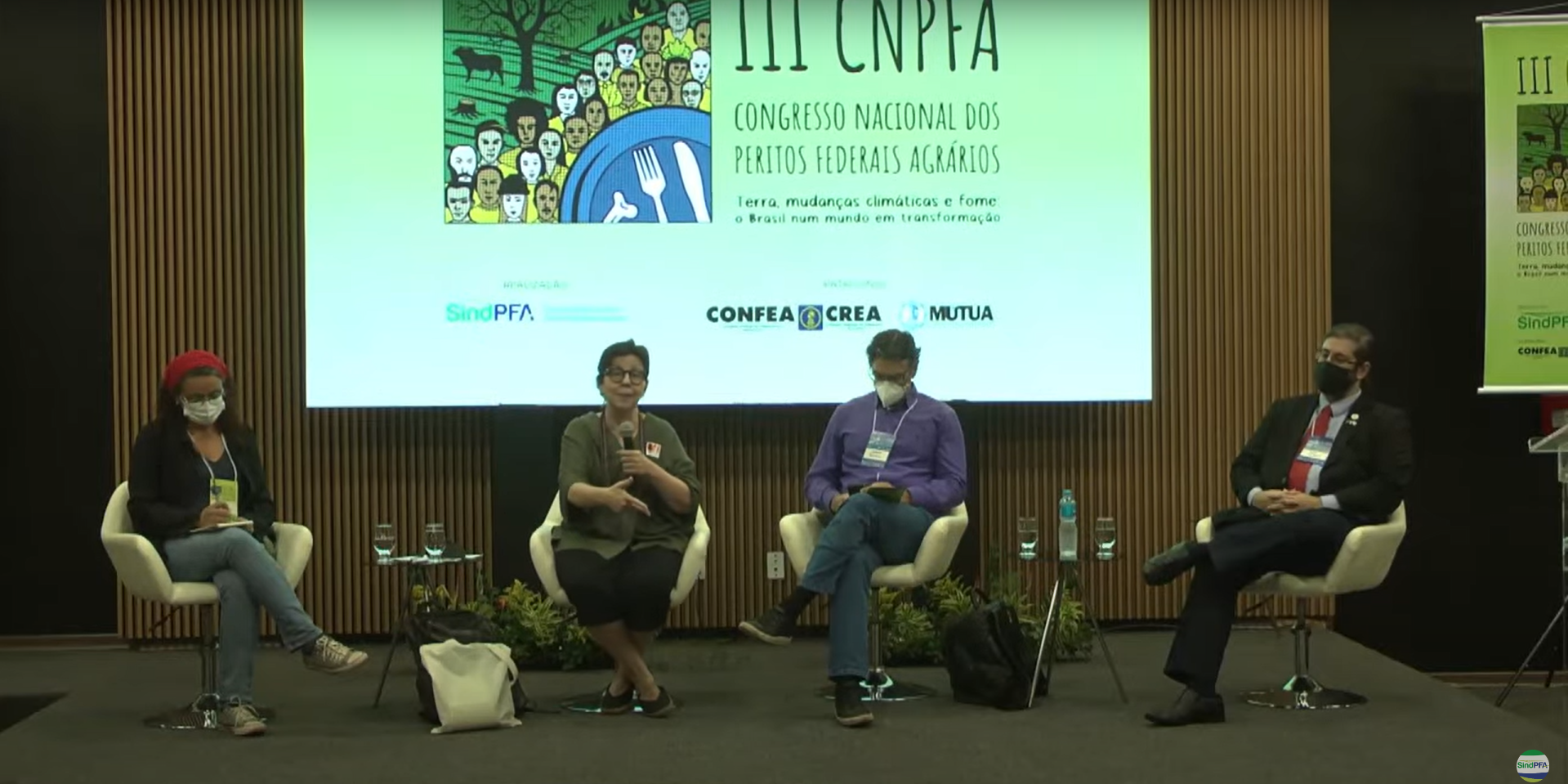
This Wednesday, November 30th, the WFP Centre of Excellence against Hunger Brazil participated in the III National Congress of the Federal Agrarian Experts (CNPFA, in Portuguese) in the round table – Confronting hunger, the role of the State and the protagonism of family agriculture. The Senior Partnerships Officer of the Centre of Excellence, Igor Carneiro, took part in the discussion with Tereza Campello, professor at USP and former Minister of Social Development, and Márcio Pochmann, professor at Unicamp and former president of Ipea.
The Congress gathers authorities, academics, managers and professionals to discuss land and natural resources management at the center of a sustainability agenda, as well as the search for a new model of agrarian reform, land rights, fighting hunger, land registry and institutional integration, among other important issues. The event takes place in Brasilia, hosted by the National Union of Federal Agrarian Experts (SindPFA, in Portuguese) between November 28 and December 2 of 2022.
At the beginning of the panel, Tereza Campello called attention to food insecurity in rural areas. According to her, public policies aimed at small and medium farmers, in addition to increasing the rural population’s income, contribute to more sustainable food systems and to the improvement of the food supply, with more nutritious and healthier food. “Although the rural population is much smaller than the urban population, rural poverty and rural hunger are more severe, paradoxically,” she warned.
The former minister also highlighted the role of the National School Meals Programme (PNAE, in Portuguese) in combating hunger and food insecurity and the positive impact that food provided to children had when the purchase of food from local family farms was incorporated into this policy.
Igor Carneiro, Officer of the Centre of Excellence, presented the work of the Centre and of WFP in Brazil and the world, and highlighted the role of family farming in feeding society, the importance of State support for small producers, and how climate change will increasingly affect food and nutritional insecurity, including when it comes to food production. According to data from the World Food Programme, around 345 million people in the world today are severely hungry, and over 1 billion are food insecure, but this reality is not the result of a supply crisis. “We produce enough food to feed the whole world, hunger is not just an issue of production, it is an issue of access, distribution and waste,” said Igor.
Click here to watch the full recording of the event.




